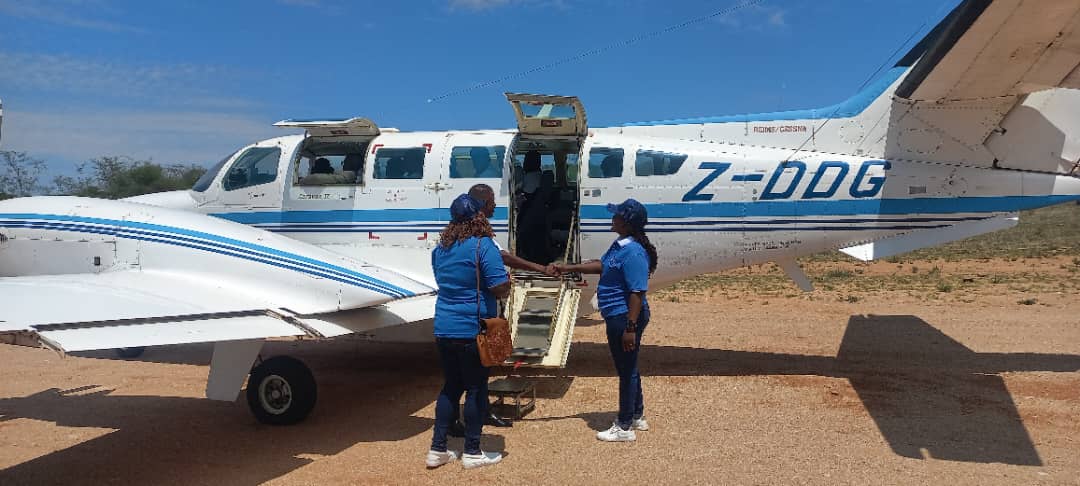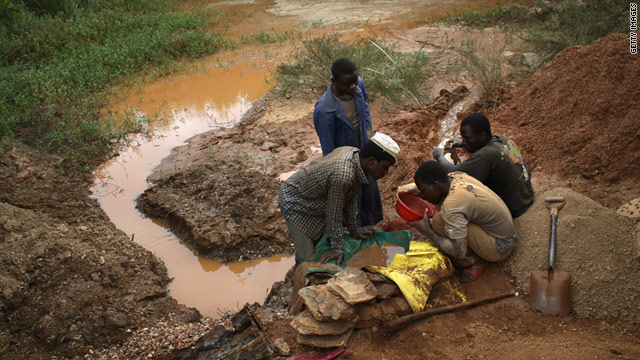HUNDREDS of artisanal gold miners have descended on Arda Transau following rich gold deposit discoveries in the area, crowding out families relocated to the area from Chiadzwa.
The gold rush in the community, particularly Mbada Village, which has been joined by locals, is reminiscent of the 2006 diamond craze in Chiadzwa, which led to the displacement of villagers as mining companies moved in.
Roads to Arda Transau are now jammed daily with artisanal miners with picks, shovels and mineral detectors, heading to the area.
Arda Transau Relocation Development Trust (ATRDT) member, Tawanda Mufute, said the alluvial gold deposits were discovered by gold miners who work along the Mutanda mountain range, and they have been secretly mining on the pretext that they were exploring.
"Repeat visits to the same spot raised suspicion from youths in the area, who went in to investigate and noticed that they were actually mining.
"There were misunderstandings at first which almost turned violent but they later resolved to work together, triggering an influx of miners to the area," Mufute said.
While the gold rush is offering some relief to the community, which for years has been sliding into heart wrenching poverty that was pushing young men into crime, women into prostitution and forcing children to miss school to sell firewood to supplement their meagre families' income, they are not entirely happy.
Their biggest fear is a repeat of the chaos that characterised the Chiadzwa diamond rush - coupled with government brutality in securing the fields, violent crime, prostitution and an increase in social ills.
Samson Mukwada, a local who has joined the gold rush, told the Daily News that "this has just allowed us to breathe a little but we know it will not offer us permanent relief to the economic crisis brought upon us by relocation".
Some families have often survived on salt-spiced anthill soil and water, with the number of malnourished adults and children increasing, which was witnessed by this paper's crew.
Households without income earning members have been the hardest hit and have been forced to sell their livestock.
The promised livelihood projects that included bringing in water for irrigation from Osborne Dam have not materialised.
Elderly locals, who are unable to join the mining activities, are cashing in on the gold rush by selling food to the illegal artisanal miners.
"I wish I was still young and able otherwise I'm resigned to selling food to at least get something from this," an elderly Rudo Mavhiza said, as she ambles on with a basket of home-made doughnuts.
On the other hand, young panners are making a killing, as some are making almost $100 daily.
Mufute said "people with metal detectors are making the work a lot easier for the panners as they offer the technology and demand a 50 percent share of the detected gold which people gladly accept".
Gold dealers are paying an average of $38 per gramme for the yellow metal.
With the illegal mining taking place just 500 metres from Wellington Primary School in the Mbada area, there is also concern over the potential disruption of school activities.
Mary Chitsiku, a middle-aged woman who is also a food vendor, said while she was happy to get something from the gold rush, she was concerned that some school going pupils who have joined in may not want to continue their studies.
"We hope that schoolchildren will resist the temptation to stay in the pits when schools open," Chitsiku said.
These were also the concerns raised by a tease report by ATRDT which said because of the close proximity of mining activities to settlements "young children could be exposed to drug abuse with adolescent boys likely to live school to join the gold rush".
The report also raised concern that girls might be lured into indulging in transactional sexual activities for money.
There are also concerns over the environmental degradation and there will be no one to reclaim the land according to the ATRDT report.
"Great damage is done to the land so as no one reclaims it after this activity; great danger to livestock for many pits will be left uncovered; and soil erosion since it's done on mountain slope," are some of the environmental concerns raised by the brief report.
It also noted the potential for the desecration of graveyards which lie only 50 metres from current illegal mining operations.
- dailynews
 Zimbabwe launches new airline
Zimbabwe launches new airline  Hichilema meets Chivayo
Hichilema meets Chivayo  Millions celebrate Diwali festival in India
Millions celebrate Diwali festival in India  SA bitcoin firm mulls Zimbabwe listing
SA bitcoin firm mulls Zimbabwe listing  Gold edges up as traders await guidance
Gold edges up as traders await guidance  Airlink applies for Lanseria to Harare, Bulawayo route
Airlink applies for Lanseria to Harare, Bulawayo route  Young Investment Professional (YIP) Graduate Programme 2019
Young Investment Professional (YIP) Graduate Programme 2019 











 Young Investment Professional (YIP) Graduate Programme 2019
Young Investment Professional (YIP) Graduate Programme 2019
Editor's Pick